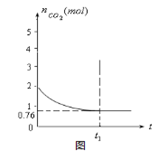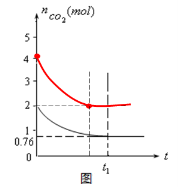Q:
I’d like to know about fluency.What can I do to feel better when I’m talking to other people? Do you have some ways to learn it faster? Please help me! —Roberto in Brazil
A:
Roberto wants to know how to become more fluent in English, and this is something you want to be able to do “fast”.
First, if you get to meet English speakers much, the important rule is to listen not just to native speakers of English, but also to very good users of English.If you don’t, then listen to the radio, TV or films in English.
The next step is to notice what it is that speakers of English do, which makes them sound fluent.The first trick(诀窍) is to probably have confidence.Some people think they might make mistakes.Don’t worry about that.Your listeners will usually try hard to understand you — a few grammar mistakes aren’t going to worry them.
What you do need to worry about is pronunciation, especially stress(重音).When you learn a new word or expression, learn it with its stress.Notice how a native speaker says it or look it up in a dictionary.
Another good thing that speakers of English do is to have a few tricks up their sleeves(袖子) for when they need to give themselves thinking time.Sometimes they use “filler sounds” like er, um and so on.
It is also useful to know how to bring other speakers into your conversation so that you keep them interested - and this is often done by asking questions like “What do you think?” “How do you feel about this?” and so on.
So, to become a fluent speaker, you’ll need to put into practice all these kinds of things.And there’s the key: practise, practise, practise. -Susan Fearn
56.Susan first encourages English learners to .
A.meet English speakers B.listen to very good speakers
C.talk to English speakers D.buy a radio or a TV set
57.When mentioning pronunciation, Susan pays special attention to .
A.stress B.expressions C.dictionaries D.words
58.What do the underlined words “to have a few tricks up their sleeves” probably mean?
A.To wear a lot of clothes.
B.To have a secret plan or idea.
C.To hide some tricks into their sleeves.
D.To have sleeves covering their whole arms.
59.What do we know from the passage?
A.One can only learn stress from dictionaries.
B.Grammar mistakes worry one’s listeners a lot.
C.Asking questions can make one’s conversation attractive.
D.One can become fluent if one practises one of the suggestions.
 2CO(g) △H>0
2CO(g) △H>0

 所以平衡向右移动,正反应速率大于逆反应速率;
所以平衡向右移动,正反应速率大于逆反应速率; 的浓度增大,所以反应速率加快,达到平衡的时间减少,设消耗Xmol
的浓度增大,所以反应速率加快,达到平衡的时间减少,设消耗Xmol ,则有
,则有
